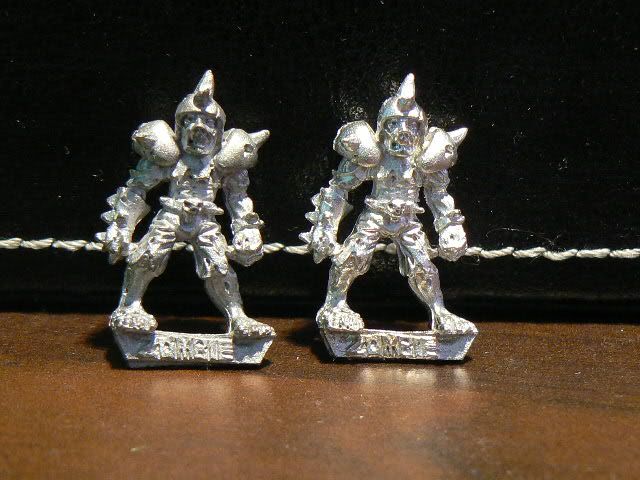Well, sure. They're not servicing a segment of the gamer market by not selling old minis, regardless of their reason.cyagen wrote:My economist brain however can't get over the fact that GW is leaving a BIG part of the market empty.
But my economist brain, a small shrivelled piece of blackened walnut hull encapsulated like a teratoma somewhere inside my head, says that recasting is theft and ought to be prosecuted to the fullest extent of the law in order to PROTECT free market forces.
If there is market demand for inexpensive minis, a supplier should be encouraged to service this demand without restriction. In Bloodbowl, this means selling minis people want at a price they're happy paying AND allowing use of said minis freely in any tournament/event they want to play in.
At the same time, if another supplier (GW) doesn't want to sell their minis inexpensively for whatever reason (maybe their labor market imposes higher production costs on them which need to be recouped through sales and their business model or materials costs don't permit them to seek volume sales), then it is their choice to appeal to a high budget segment of the same market.
Having Vendor A take the products of Vendor B's labor costs and reproduce those items with inferior materials and without investment in design/development would, if unchecked, quickly saturate the market with inferior product and bankrupt Vendor B. Supply and Demand at work? Hardly! Thats outright theft of Vendor B's investment in design and development.
Thats what recasting does.
But GW (Vendor B) contributes to their own problem:
1. They keep jacking up the prices at a greater rate than inflation, pricing their product out of the hands of more people and encouraging other companies to take a swipe at their market by producing competing minis.
2. GW insists people play only with minis produced by GW.









